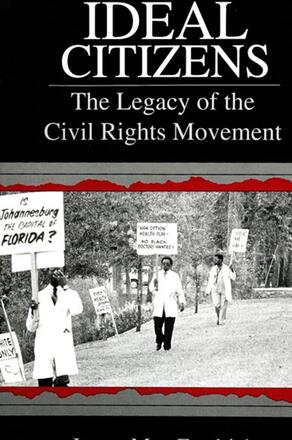
Ideal Citizens
The Legacy of the Civil Rights Movement
Alternative formats available from:
James Max Fendrich is Professor of Sociology at Florida State University.
Reviews
"Fendrich's book represents an invaluable corrective to the tendency to view the 'sixties experience' as synonymous with the lives of white college students. Not only did the era begin with the black student sit-in movement, but a far larger percentage of black college students participated in some form of protest activity than did their white student counterparts. The book is also unique for the empirical comparison it affords of the past and present lives of white and black activists. Finally, Ideal Citizens is important for the lie it makes of the so-called Big Chill thesis. As Fendrich's study makes clear, far from selling out, the majority of those who took part in the movement in Tallahassee have remained politically active and true to the ideals they espoused some thirty years ago. " — Doug McAdam, author of Freedom Summer and Political Process and the Development of Black Insurgency, 1930-1970.
"This book does far more than trace the social and political careers of black and white student civil rights activists and their nonactivist counterparts over a quarter of a century. In a brilliant but at times painful conclusion, Fendrich analyzes both the importance and the relative powerlessness of these activists in an era of political conservatism. Personally empowered by their early experiences, they have continued to struggle to extend democracy, even though neither of the national parties espouses the ideals they still cherish. This volume is a signal contribution to the study of social movements. " — Lewis M. Killian, author of Impossible Revolution, Phase II
"This research fills an important gap in our knowledge and understanding of the civil rights movement on college campuses and the consequences for the activists. Those who read it seriously will have some of the favorite myths about activists destroyed. The author has made an important contribution to the sociology of social movements and to race relations research and theory. I think this will be a very important book. " — Edgar G. Epps, University of Chicago